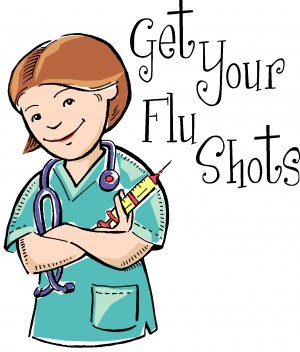
DENVER— Influenza activity continues to increase in the United States, and most of the country is now experiencing high levels of influenza, according to CDC’s latest FluView report.
Dr. Chris Urbina, executive director and chief medical officer at the Colorado Department of Public Health and Environment continues to recommend influenza vaccination for people who have not yet been vaccinated this season and antiviral treatment as early as possible for people who get sick and are at high risk of flu complications.
Dr. Urbina said, “While the timing of influenza seasons is impossible to predict, based on past experience it’s likely that flu activity will continue for some time.”
As of Jan. 12 the state has reported a total of 674 cases, from 36 counties, of people hospitalized with the flu. Two additional pediatric deaths were confirmed (one each from Denver County and El Paso County), bring the total of pediatric deaths from flu this season to four.
“Anyone who has not already been vaccinated should do so now,” said Dr. Urbina. “It’s important to remember that people who have severe influenza illness, or who are at high risk of serious influenza-related complications, should get treated with influenza antiviral medications if they get flu symptoms – regardless of whether or not they got vaccinated. People who are ill with the flu don’t need to wait for a positive laboratory test to start taking antivirals.”
So far this season, most (91 percent) of the influenza viruses that have been analyzed at CDC are like the viruses included in the 2012-2013 influenza vaccine. The match between the vaccine virus and circulating viruses is one factor that affects how well the vaccine works, but other factors are involved. Based on a vaccine effectiveness study just completed by CDC, this year’s vaccine is estimated to prevent 62 percent of influenza requiring a doctor visit. While this isn’t ideal, vaccination is still the best prevention measure available.
Dr. Lisa Miller, state epidemiologist, said, “There is still a supply of flu vaccine available in the state. You first should check to see if your doctor has vaccine available. This way, your doctor can document your vaccination. If your doctor is not offering vaccinations, they also are available at some grocery and drug stores.”
It is important to note that retail pharmacies and clinics may not be able to offer influenza immunizations to young children. It’s best to check with the retail outlet before making the trip to be immunized.
Lastly, local public health agencies may also have a limited supply of flu vaccine.
Priority groups recommended for vaccination
- children ages 6 months to 4 years
- people with chronic health conditions (asthma, chronic pulmonary diseases, significant heart disease, sickle cell anemia, neurologic conditions that compromise respiratory function and people with a suppressed immune system)
- women who are pregnant or planning to become pregnant
- American Indians/Alaska Natives
- people who are morbidly obese
- residents of nursing homes and other chronic care facilities
- health care professionals
- household contacts and caregivers of children younger than 5 or adults 50 and older
When to seek care immediately
For Children
- Fast breathing or trouble breathing
- Bluish skin color
- Not drinking enough fluids
- Not waking up or not interacting
- Being so irritable that the child does not want to be held
- Flu-like symptoms improve but then return with fever and worsened cough
- Fever with a rash
For Adults
- Difficulty breathing or shortness of breath
- Pain or pressure in the chest or abdomen
- Sudden dizziness
- Confusion
- Severe or persistent vomiting
Flu symptoms can include
- fever
- cough
- sore throat
- runny or stuffy nose
- body aches
- headache
- chills
- fatigue
- sometimes diarrhea and vomiting
To help protect yourself and others from flu
- Cover your nose and mouth with a tissue when you cough or sneeze.
- Wash your hands often with soap and water. If soap and water are not available, use an alcohol-based hand rub.
- Avoid touching your eyes, nose and mouth. Germs spread this way.
- Try to avoid close contact with sick people.
- If you are sick with flu-like illness, stay home for at least 24 hours after your fever is gone, except to get medical care or for other necessities. (Your fever should be gone without the use of a fever-reducing medicine.)
- While sick, limit contact with others as much as possible to keep from infecting them.
Click here more information about influenza and to view the weekly Colorado flu surveillance report. Influenza information is also available through the COHELP line, metro area/local 303-389-1687, and statewide 877-462-2911.
 Print This Post
Print This Post







